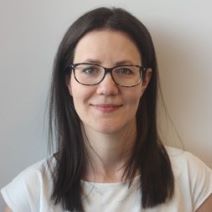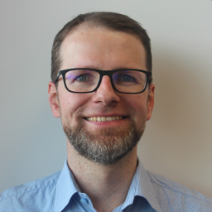Webinar: Improving Wi-Fi with Machine Learning

Wi-Fi (IEEE 802.11) networks equipped with Artificial Intelligence & Machine Learning (AIML) may redefine the next generation of wireless unlicensed communications systems. On one hand, next-generation Wi-Fi networks are required to address critical design limitations to meet the requirements of future Internet-based applications like eXtended Reality (XR) or multisense communications. AIML has largely shown outstanding results in countless applications (e.g., image recognition, chatbots), thus becoming a cornerstone technology in many areas. Now, the use of AIML as a key technology for driving the evolution of Wi-Fi is under study. The benefits that AIML can bring to Wi-Fi go from providing the desired reliability and extremely high performance to addressing the technical innovations in new standards. In this talk, we begin with an overview of the state of the art on how researchers have foreseen the integration of ML and Wi-Fi through relevant use cases. We also describe ongoing standardization activities in IEEE 802.11. Finally, we outline future research areas.
Date and Time
Location
Hosts
Registration
-
 Add Event to Calendar
Add Event to Calendar
Loading virtual attendance info...
- Contact Event Host
- Co-sponsored by IEEE Future Networks
Speakers
 Prof. Boris Bellalta, U. Pompeu Fabra (UPF)
Prof. Boris Bellalta, U. Pompeu Fabra (UPF)
Biography:
Prof. Boris Bellalta is a Full Professor at Universitat Pompeu Fabra (UPF), where he heads the Wireless Networking group. His research interests are in wireless networks and performance evaluation, with emphasis on Wi-Fi technologies, and Machine Learning-based adaptive systems. He is currently involved as principal investigator and coordinator in several EU, national and industry funded research projects that aim to push forward our understanding of complex wireless systems, and in particular, contribute to the design of future wireless networks to support XR immersive and holographic communications.
 Prof. Katarzyna Kosek-Szott, UPF
Prof. Katarzyna Kosek-Szott, UPF
Biography:
Prof. Katarzyna Kosek-Szott received her M.Sc. and Ph.D. degrees in telecommunications from the AGH University of Science and Technology, Krakow, Poland in 2006 and 2011, respectively. Currently she is working as an associate professor at the Institute of Telecommunications, AGH University. Her general research interests are focused mostly on wireless LANs, quality of service provisioning in 802.11 networks, novel 802.11 amendments, 5G and beyond, and coexistence of different radio technologies in unlicensed bands. In 2018 and 2020 she served as a European Research Council Panel member for the Systems and Communication Engineering area.
 Prof. Szymon Szott, UPF
Prof. Szymon Szott, UPF
Biography:
Prof. Szymon Szott received his MSc and PhD degrees in telecommunications (both with honors) from the AGH University of Science and Technology, Krakow, Poland in 2006 and 2011, respectively. Currently he is working as an associate professor at the Institute of Telecommunications of AGH University. In 2013, he was a visiting researcher at the University of Palermo (Italy) and at Stanford University (USA). His professional interests are related to wireless local area networks (channel access, quality of service, security, inter-technology coexistence). He is an IEEE 802.11 Working Group member.
 Dr. Francesc Wilhelmi, Nokia Bell Labs
Dr. Francesc Wilhelmi, Nokia Bell Labs
Biography:
Dr. Francesc Wilhelmi is a research engineer at Nokia Bell Labs. He holds a Ph.D. in Information and Communication Technologies (2020) and an M.Sc. in Intelligent and Interactive Systems (2016) from Universitat Pompeu Fabra (UPF). His main research interests are in Wi-Fi technologies and their evolution, network simulators and network digital twinning, machine learning, and distributed ledger technologies.

